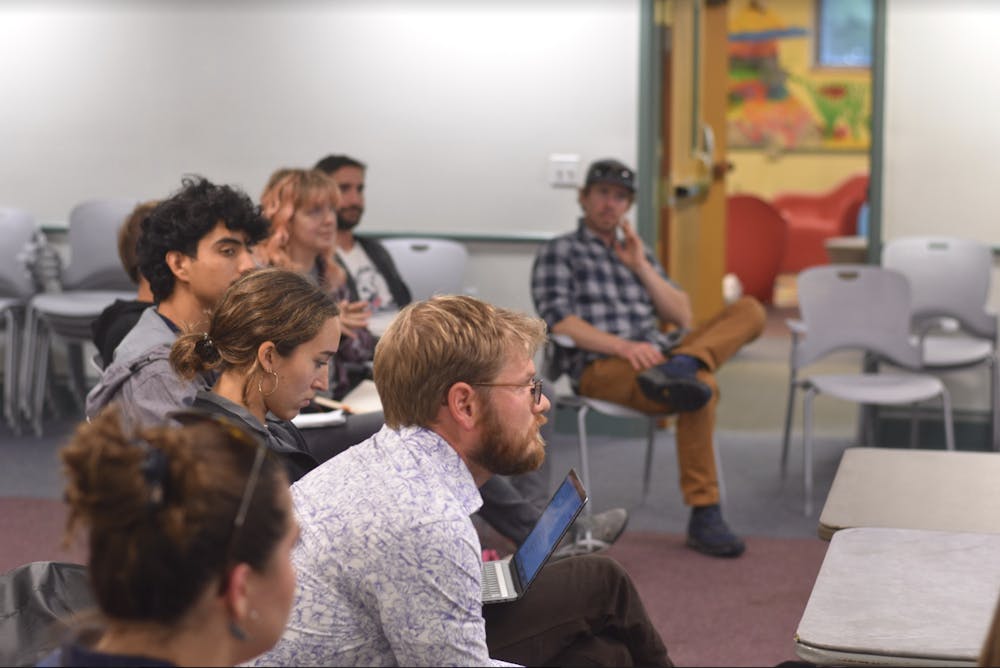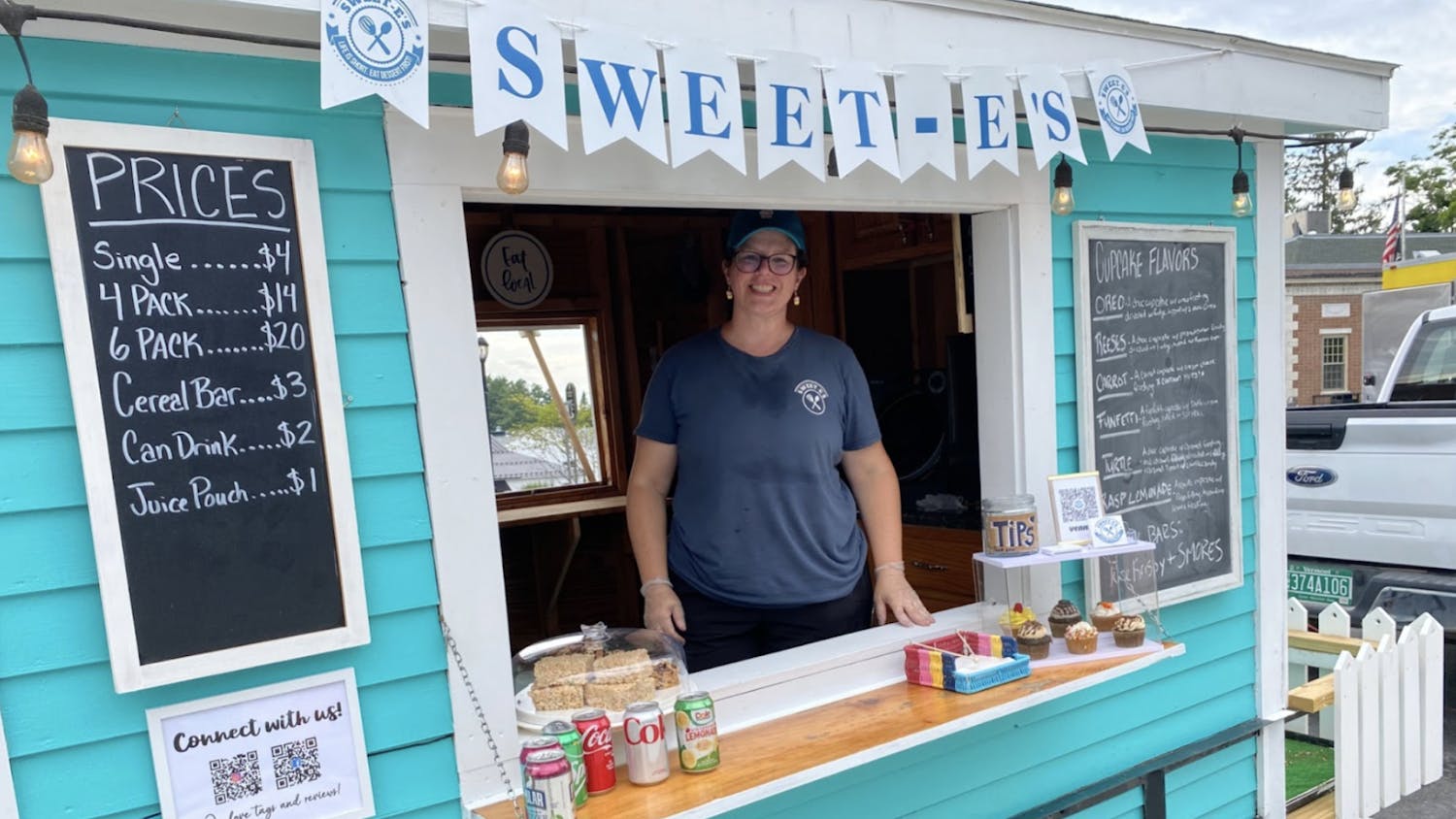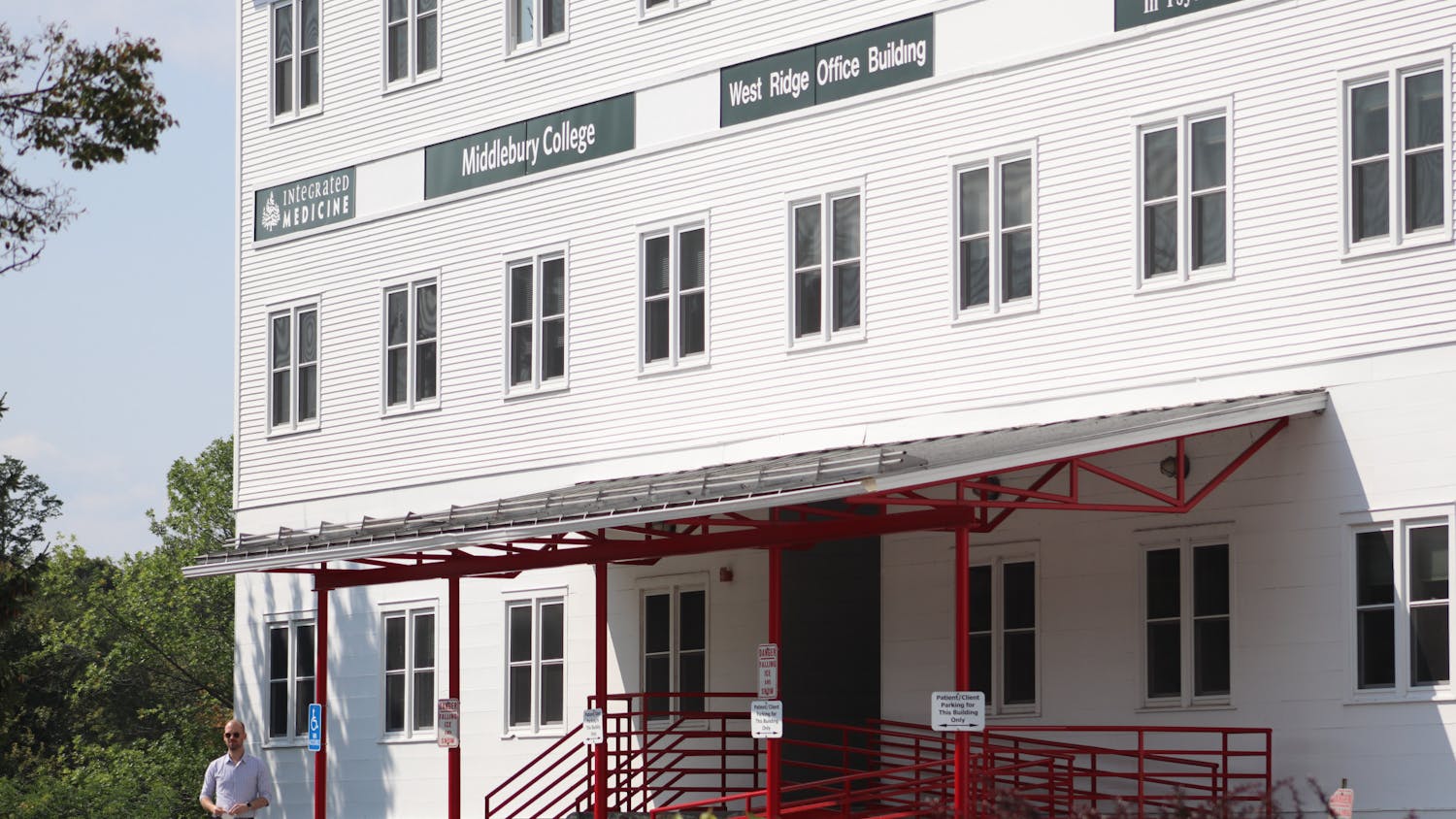It can be hard to find a place to skateboard in Vermont — and even harder to find a safe place to experiment with new skills. Currently, most local skateboarders make the trek to permanent skateparks in Burlington, Vt. for a space to hone their craft.
There is no purpose-built skatepark in Addison County. But the Middlebury Skatepark Project wants to change that.
“We have been meeting monthly [since May] as a group at the Ilsley Library community room,” Ethan Murphy, co-leader of the skatepark project, wrote in an email to The Campus. “We have had a regular presence at the Midd Summer Market raising awareness, selling stickers, raffling skate decks and most recently selling our very popular Middlebury Skatepark Project logo t-shirts designed by local artist Mike Kin.”
Murphy added that the group has 160 members, including Middlebury College students, and has raised $1000.
The skate park would be a multi-use space, designed to widely benefit the Middlebury community.
“I think that having a purpose-built, contemporary, safe place to ride a skateboard, bike, scooter, wheelchair or rollerblades will benefit the entire community including the college community,” Murphy wrote. “Our goal has always been to locate the park close to downtown to maximize the number of people who can access it without transportation beyond their skateboard, scooter, etc.”
In an effort to determine the optimal location for the skatepark, Clark O’Bryan ’23, an architecture major, spent the summer conducting site analyses in downtown Middlebury. According to his analysis, the best location for the park would be next to the town pool on Buttolph Drive.
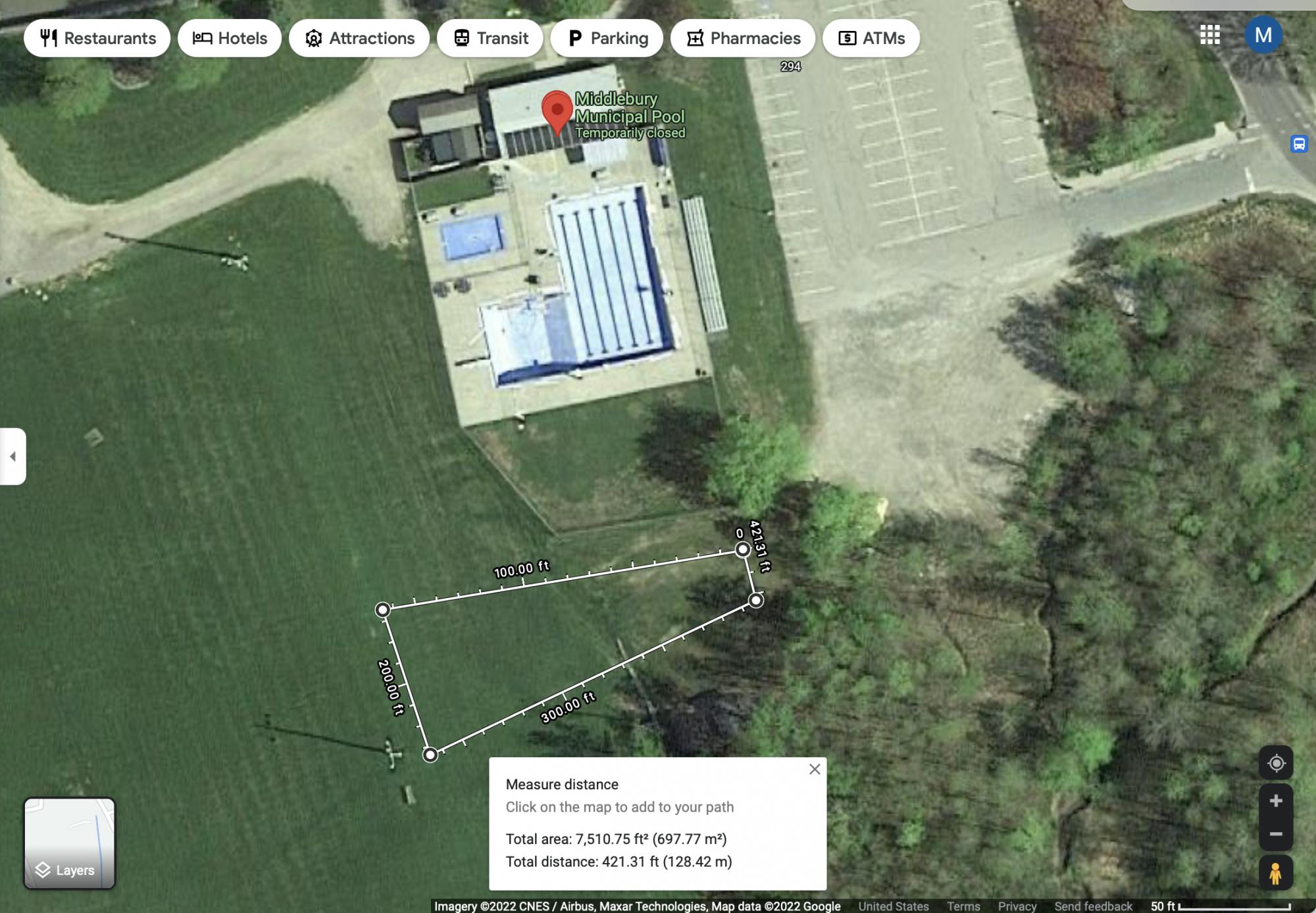
O’Bryan said his interest in the project came from rollerblading growing up and having friends who were into skateboarding.
“Not until coming to Middlebury and getting more involved in the community did I begin to recognize the capacity of such a space to activate a town like ours,” he told The Campus.
O’Bryan is not the only student working with the project.
“Middlebury College students have been part of the Middlebury Skatepark Coalition from the very start,” Murphy said. “Many students attended our first informational meeting and have been involved ever since.”
Devin Santikarma ’25 and Bella Butcher-Salazar ’25 are working with the project as part of the Community Connected Learning course this fall, which is taught by Kristen Mullins, associate director of the Center for Community Engagement (CCE).
The partnership between the Middlebury Skatepark Project and the CCE was forged via the Middlebury Liberal Arts in Action Platform.
“This is a new platform that facilitates reciprocal relationships with community partners within the context of Middlebury classes and research programs. Community partners can share project needs and ideas; and faculty can share details of courses and research programs looking to incorporate community-connected work,” Mullins wrote in an email to The Campus.
Faculty and staff at the college have also been actively involved in the Project, including Murphy, who works as a media production specialist in the Film and Media Culture Department, and Associate Professor of Political Science Kemi Fuentes-George.
O’Bryan emphasized the importance of the cooperative relationship between the town and college, which has weakened during the Covid-19 pandemic.
“Hopefully the skatepark would offer a space for both groups to come together and develop relationships to heal those differences,” he wrote.
The Middlebury Skatepark Project is looking for the creation of a professionally designed and built concrete skatepark. Recent estimates from The Skatepark Project label the costs of such parks at $50 to $70 per square foot.
Murphy noted that while non-professionally built skateparks are feasible, they are often poorly constructed and not durable. He noted that the neighboring town of Vergennes recently worked on such a project, which became unusable just two weeks after its completion.
Despite the high costs, Murphy said he believes professional construction is the best strategy.
“A professional park is the only way to go because it will be safe, fun, attractive, and durable,” he wrote.
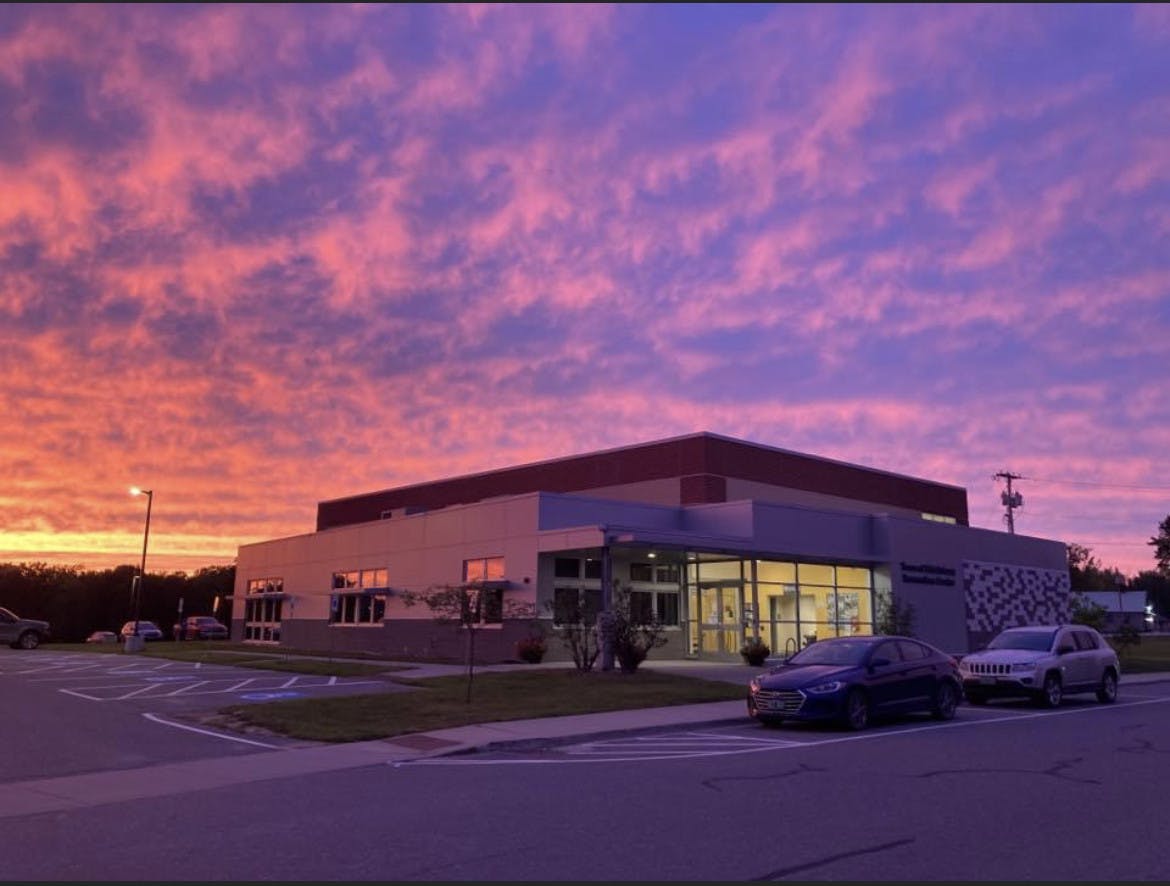
Over the past two weeks, members of the project discussed a formal partnership with the Middlebury Parks and Recreation Department in order to utilize available grants and expand fundraising efforts. While the project has yet to formally ask the college for support, Murphy said he hopes that the college will notice the benefits of the skatepark and contribute through grants, fundraising, and other partnerships.
Currently, the Middlebury Parks and Recreation Department, in collaboration with Arson Skate Shops, offers pop-up skateboarding clinics in East Middlebury at a cost of $50 per session.
Both Murphy and O’Bryan highlighted the importance of a permanent structure to allow community members to experience the sport without having to pay for skateboarding lessons. They added that a key component of fundraising for the project is emphasizing the demand for the Park.
O’Bryan cited the Andy A_Dog skatepark in Burlington, Vt. as a model for the Middlebury project in terms of both its inclusivity and constant use.
“I absolutely anticipate more people riding skateboards, bikes, scooters, WCMX [wheelchair motocross], skates, etc. if there is a safe, purpose-built place to do it in our town,” Murphy said.
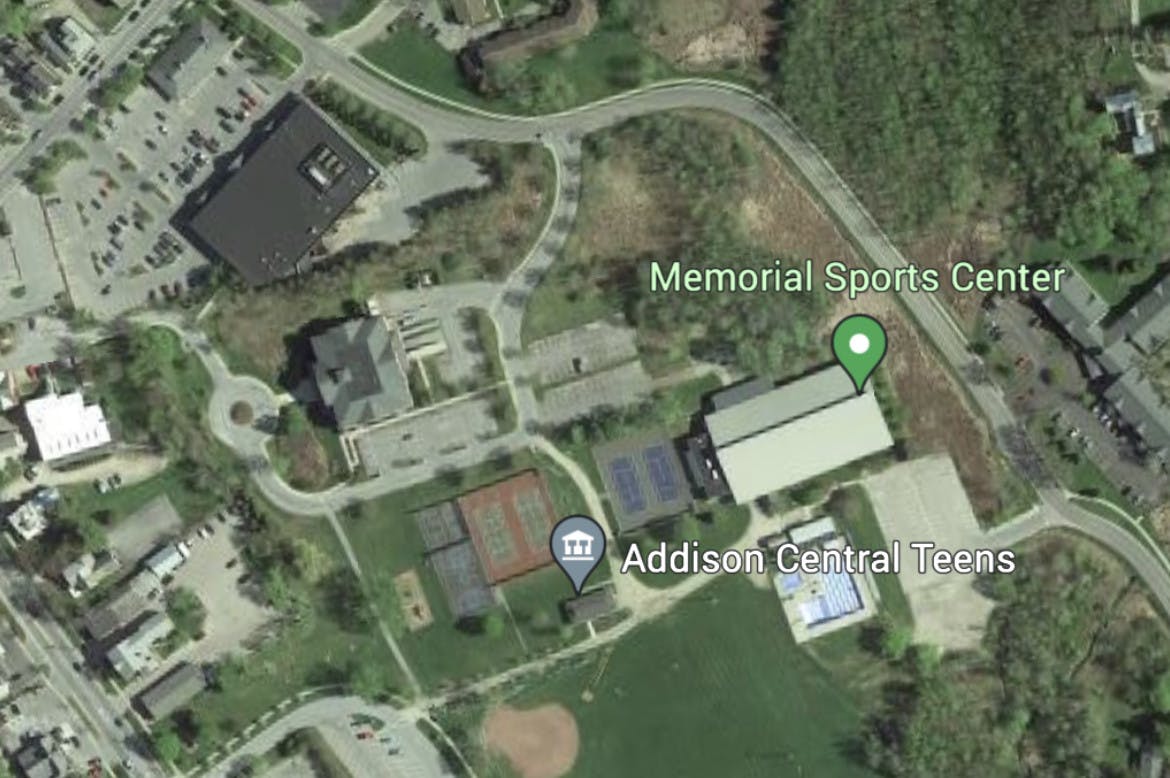
There is no current timeline for the project, and securing adequate funding remains a significant obstacle. However, members of the project’s working group remain committed to their cause.
“If designed and situated well, a skatepark is a magical thing: a place where parents feel safe having their kids stay and where they don’t have to constantly supervise them to ‘have fun,’” O’Bryan said. “Kids can learn to be self-sufficient, challenge themselves and sort things out without the overwhelming presence of adults to lead them the right way.”
Editor’s Note: Devin Santikarma ’25 is the multimedia editor for The Campus.
Ben Wagner (he/him) is a Local Editor.
Wagner has previously served as an SGA Writer and Staff Writer. He is an IGS-Global Environmental Change major, and is minoring in Religion. When not up to other shenanigans, Ben loves playing outside and riding his bike.

